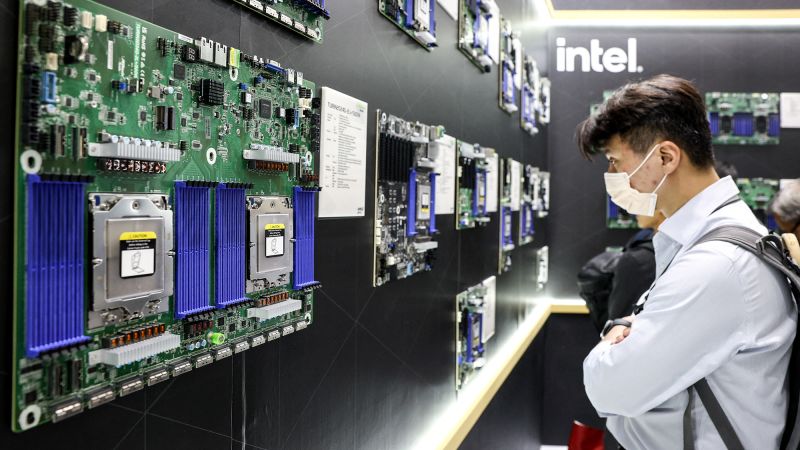TSMC's $100 Billion Gamble: How This Chip Tech Could Decide the US-China AI Showdown

The race for artificial intelligence dominance between the United States and China is intensifying, and a surprising player is making a monumental move: Taiwan Semiconductor Manufacturing Company (TSMC). In what’s being hailed as the largest single foreign investment in US history, TSMC is pouring a staggering $100 billion into building advanced chip manufacturing facilities in Arizona. Former US President Donald Trump famously dubbed TSMC the “most powerful company in the world,” and this investment underscores just how critical they are to the future of AI.
But why are these chips, and TSMC’s ability to produce them, so pivotal? The answer lies in the relentless demand for increasingly powerful AI models. These models, powering everything from self-driving cars to sophisticated medical diagnoses, require incredibly complex and specialized processors – chips. Traditional CPUs simply can't handle the computational load. Instead, AI relies on GPUs (Graphics Processing Units) and, increasingly, custom-designed AI accelerators. TSMC is a world leader in manufacturing these advanced chips, including those used by companies like Nvidia and AMD, the key suppliers to the AI revolution.
The US-China AI Race: A Chip-Fueled Competition
The US and China are locked in a fierce competition to lead the AI field. Whoever controls AI will likely control the future of technology, defense, and even global power. Access to cutting-edge chips is a crucial strategic advantage in this race. For China, reducing its reliance on foreign chip manufacturers, particularly TSMC, is a national priority. While China has made strides in its own chip development, it still lags behind TSMC in terms of advanced manufacturing capabilities.
TSMC's investment in Arizona is seen as a major victory for the US, bolstering its domestic chip manufacturing capacity and reducing its dependence on Taiwan, which sits in a geopolitically sensitive region. This move also allows US companies to access leading-edge chip technology without the risk of supply chain disruptions.
Beyond the Investment: What's at Stake
The $100 billion investment isn't just about building a factory; it’s about securing a strategic advantage. Here’s what's at stake:
- Technological Leadership: Access to the most advanced chips enables the US to maintain its edge in AI research and development.
- Economic Growth: The Arizona facility will create thousands of high-paying jobs and stimulate economic activity in the region.
- National Security: A secure domestic chip supply chain is vital for national security, reducing reliance on potentially adversarial nations.
- Geopolitical Influence: The investment reinforces the US’s position as a global technology leader and strengthens its alliances.
Challenges and Future Outlook
While the TSMC investment is a significant step forward, challenges remain. Building and staffing a world-class chip fabrication facility (a “fab”) is a complex and time-consuming process. Furthermore, the US needs to continue investing in its own chip design ecosystem to remain competitive. The ongoing global chip shortage has highlighted the fragility of supply chains and the importance of diversification.
TSMC’s decision to invest in the US is a clear signal of the strategic importance of advanced chip technology. As the AI race intensifies, this $100 billion gamble could very well determine which nation emerges as the ultimate victor. It’s a fascinating development that will have far-reaching implications for the global economy and geopolitical landscape.






